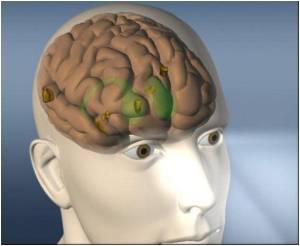Nasal sprays with the hormone oxytocin, nicknamed the cuddle chemical , could ease the symptoms of schizophrenia.

In the study, 15 participants used the sprays for three weeks only.
And most reported measurable improvements in their symptoms in the first trial to test oxytocin in schizophrenia.
"It's proof of concept that there's therapeutic potential here," New Scientist quoted David Feifel at the University of California in San Diego, head of the team running the trial, as saying.
Each participant received oxytocin or a placebo for three weeks, then the opposite treatment for three weeks with a week break in between.
On the basis of two standard tests for schizophrenia, taken before and after each block of treatment, participants averaged improvements of around 8 per cent when taking the oxytocin compared with the placebo.
"Standard antipsychotic drugs increase their efficacy several weeks later too, so oxytocin fits that profile," said Feifel.
He said that the rationale for treating people came from his own team's studies showing that oxytocin could relieve a form of psychosis in mice, and research showing that people who sniffed nasal sprays of oxytocin became more trusting, which could ease paranoia symptoms in schizophrenia.
The study has been published in Biological Psychiatry.
Source-ANI
 MEDINDIA
MEDINDIA




 Email
Email










